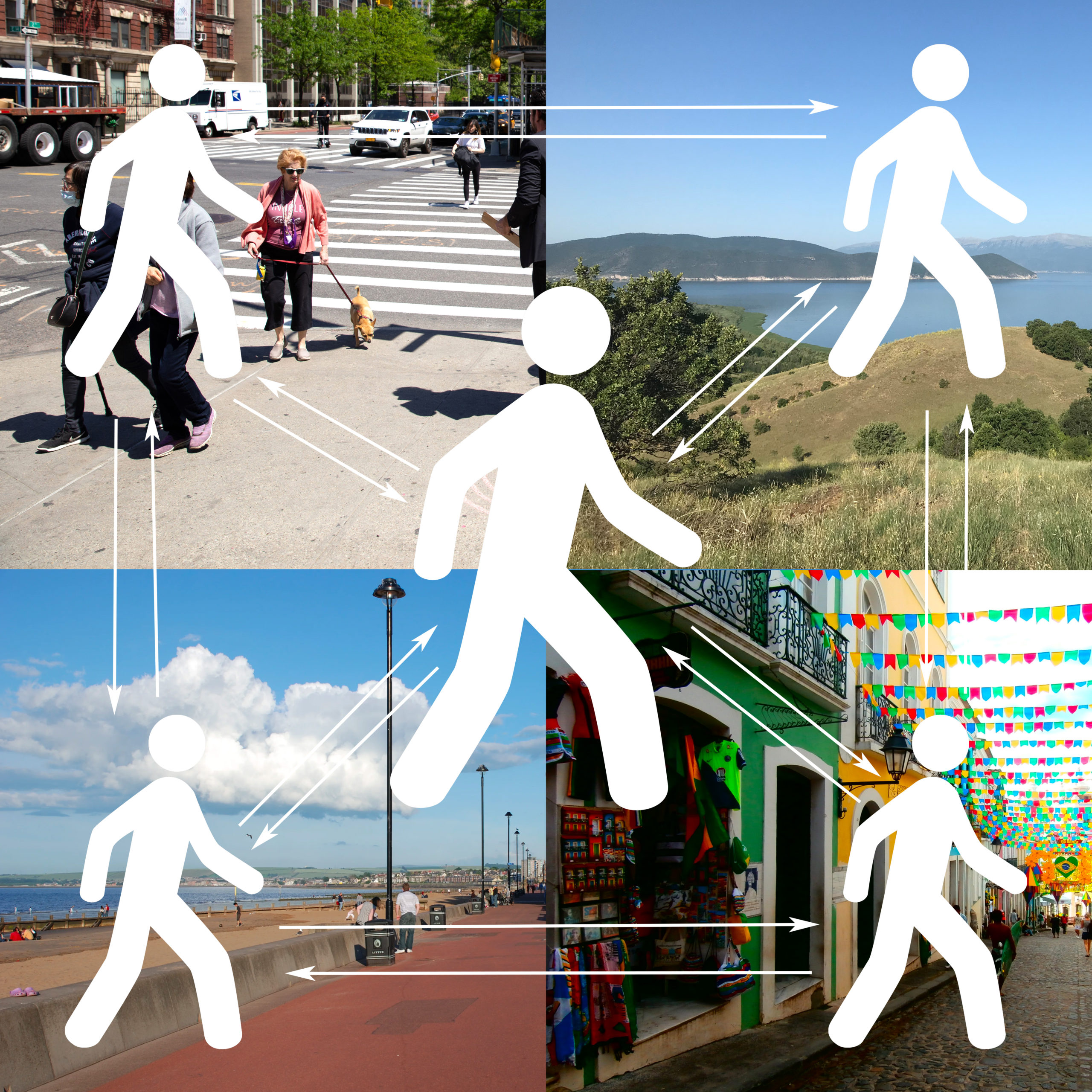The walking bodymind is a dancing body. As in dance, prolonged repetitive movement can hold the body in a transitional state at the edge of consciousness, in a hypnagogic-like state of lucid questioning, insights, and enhanced creativity. The walking bodymind is a falling forward body, a rolling body, a transitioning body, a questioning body, a still body, a horizontal body, a floating body, a holding body. A walking bodymind dreams.
For Walking as a Question, Woolgatherers Collective invites conference participants, wherever they may be geolocated, to walk with us, synchronized across time-zones. The walks will take place in liminal zones, in threshold landscapes along the edge of water that are interstitial with questioning. Our inquiry is to discover what, if any, alignment of experience might emerge without verbal communication between walkers across the globe.
The written score/prompt provided below will guide the process of this global performance, and walkers will be asked to record their unedited stream of thoughts via images, audio, or text, which will be posted on a project website. Walking may be interpreted as physical, or imaginative locomotion.
__________________________________________________
Walking the Water’s Edge
Walking meditation and attunement practice—attunement to the body, the land, and to each other scattered across continents.
Walk alone + together
Walk along an edge of water
Walk for one hour
Walk with a form of collecting your experience (write, record, photograph).
Walk begins at 6 pm/18:00 (Greece) 8am (San Francisco)
Meeting after the conclusion of the walk to share our experiences at 8pm/20:00 (Greece) 10:00am (San Francisco).
Join Zoom Meeting
https://cca.zoom.us/j/92406363935
Meeting ID: 924 0636 3935
We ask you to contribute your collected words, phrases, images via email: [email protected]
The Woolgatherers Collective includes Susanne Cockrell, Rebekah Edwards, Angela Hennessy and Deborah Valoma, who met as colleagues at California College of the Arts in Oakland and San Francisco. We are social practice artists, weavers and crocheters, documentarians and archivists, poets and manifesto writers, workers with soil, linen, hair, and gold, death care advocates, researchers, activists, and scholars. The collective was formed on-line during the pandemic outside of our academic roles. Our group practice and creative-research stands at the intersection of dreaming, death and grief work, ancestral lineages and healing, and attunement to the land whether urban street or salt marsh.
Related

Remote walking – walking with prompts
The pandemic challenged walking artists to engage with new forms and new media for their practice. Group walking was translated into online walking, allowing people around the globe to walk together. Prompts or "walking scores" facilitated pandemic walkers to explore within the limits of their walking spaces, often in surprising and new ways, individually or with other remote walkers. Online technologies permitted to listen into remote spaces, beyond physical reach in the pandemic.




Can i Make a walk water’s edge in Corsica!
I would like to participate to your project! IS it yet possible? Thanks!